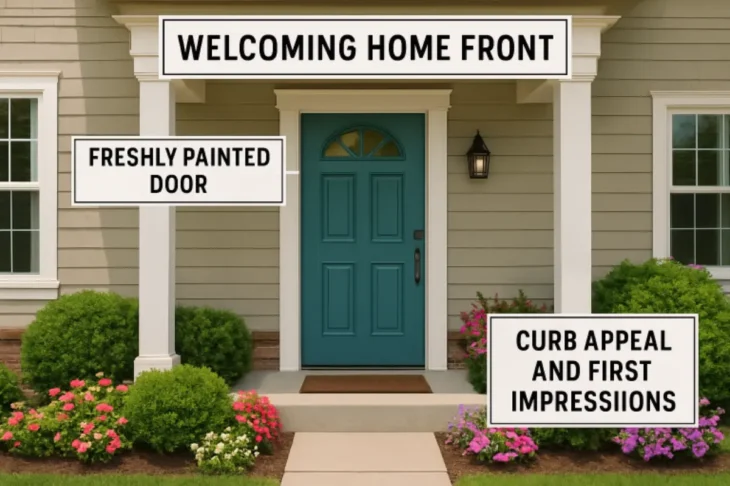
When the Passion Fades, Selling Might Be Smarter Than Staying
What if staying in the same place is costing you more than moving on? If your restaurant no longer excites you, if the day-to-day feels like a grind rather than a goal, that’s not something to ignore. It’s not just burnout or a phase. Sometimes, feeling stagnant is a signal that something bigger needs to change. And in many cases, it means it might be time to step away altogether.
Let’s talk about what it really means when the spark is gone and why selling your business could actually open the door to something better.
Is It Just a Slump or Something Deeper?
Running a restaurant is demanding. There are long hours, tight margins, and constant decision-making. It’s completely normal to go through waves of exhaustion or frustration. But when that feeling doesn’t go away, when it’s been months or even years of disinterest or dread, that’s not just a slump. It might mean you’ve outgrown the business. And yes, that’s possible, even if you built it from scratch.
Here’s what that often looks like:
- You feel disconnected – You’re no longer interested in daily operations, customer experience, or even financial performance.
- The passion is gone – You used to care about the menu, the atmosphere, the team. Now it’s all just… routine.
- You avoid big decisions – Renovations, expansion, and new marketing ideas feel exhausting instead of exciting.
- You’re constantly dreaming of doing something else – A different kind of business. A career shift. More time off. Something completely new.
- You’re stuck in maintenance mode – You’re keeping it afloat, but not growing. Just doing what needs to be done, no more.
You’re not alone if you’ve been going through the motions lately. Many restaurant owners reach a point where the excitement fades and everything starts to feel like a chore. It doesn’t always happen after a crisis or big change, either.
Sometimes, it sneaks in slowly. So, if you’re already questioning your future with the business, or wondering when to sell your restaurant business, that’s actually one of the clearest signs. It means the idea has already taken root, and it’s worth listening to.
Stagnation Isn’t Just Boring. It’s Risky.
Staying put when your heart’s no longer in it can have real consequences. For starters, performance usually slips. Not always in obvious ways. Maybe sales are still solid, but staff turnover rises, or customers stop raving like they used to. Your energy as the owner sets the tone, even if you try to hide it.
Then there’s the financial risk. A business in decline is harder to sell. If you wait until it’s struggling, your valuation drops. On the other hand, selling while it’s stable—or even thriving—gives you more leverage, more buyers, and better terms.
And don’t underestimate the personal toll. Feeling stuck for too long often turns into resentment. That resentment can bleed into other parts of your life: your relationships, your health, your self-esteem.
What Selling Really Means (Hint: It’s Not Giving Up)
Let’s be clear. Selling your business doesn’t mean you’ve failed. In fact, it can be one of the most strategic and courageous things you ever do.
You’re not abandoning ship. You’re handing it over to someone who sees fresh potential. Someone who wants to run it, grow it, maybe even take it to places you no longer feel motivated to explore.
At the same time, you’re freeing yourself to explore what’s next for you.
That could mean:
- Starting a different kind of venture
- Taking a real break for the first time in years
- Pursuing something creative
- Consulting or mentoring
- Moving closer to family
- Simply enjoying life with less stress and more flexibility
Whatever your reason, you’re allowed to want a different chapter.
Not Sure if It’s the Right Time? Ask These Questions
Here are a few ways to check in with yourself. If most of these feel true, selling might be the next step.
Does your energy immediately drop when you walk into the restaurant?
Have you stopped investing in the business, not just financially, but emotionally?
Are you avoiding change because it feels easier to “just keep going”?
Do you wish someone else would take over, even if everything is going fine?
Would you feel relieved if the business were no longer yours?
Be honest with your answers. You’re not making the decision right now, just getting clear on what’s actually going on.
Timing Matters More Than You Think
Selling at the right moment can be the difference between walking away proud or walking away frustrated. Too many owners wait until they’re exhausted, or until the numbers start to slide. That’s when options dry up, offers shrink, and the whole process feels like a struggle. On the flip side, selling while the business still looks strong on paper, and before burnout has caused real damage, keeps you in a position of strength.
So if the idea of selling doesn’t scare you, but actually makes you feel curious—or even a little relieved—that’s your signal. Don’t ignore it.
Where Do You Go From Here?
You don’t need to rush. But you also don’t need to stay stuck. Start quietly exploring your options. See what your business might be worth. Talk to someone neutral about what’s involved in a sale. Consider what life could look like after, not just financially, but emotionally. Because selling isn’t just about stepping away; it’s about stepping into something new with clarity and purpose.
Letting Go Can Be the Smartest Decision You Make
Staying out of guilt, fear, or habit won’t reignite your passion. It will just keep you stuck. Letting go, on the other hand, creates space. Space for new ideas. Space for new energy. Space to build something else or nothing at all, if that’s what you need.
Selling your business isn’t the end. It’s a decision that honors where you are now and gives you a chance to choose what comes next, instead of being pulled along by something that no longer fits. You don’t have to love it forever to be proud of what you built. You just have to know when it’s time to move on.

